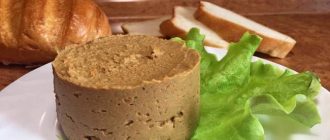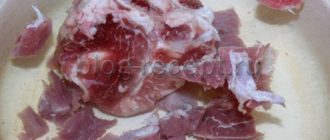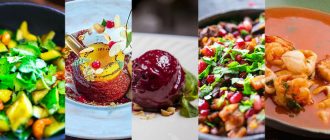The vegetarian diet has gained widespread popularity in recent years.
Some studies estimate that vegetarians account for up to 18% of the global population (1).
Apart from the ethical and environmental benefits of cutting meat from your diet, a well-planned vegetarian diet may also reduce your risk of chronic disease, support weight loss and improve the quality of your diet.
This article provides a beginner's guide to the vegetarian diet, including a sample meal plan for one week.
The vegetarian diet involves abstaining from eating meat, fish and poultry.
People often adopt a vegetarian diet for religious or personal reasons, as well as ethical issues, such as animal rights.
There are several forms of vegetarianism, each of which differs in their restrictions.
The most common types include:
- Lacto-ovo-vegetarian diet: Eliminates meat, fish and poultry but allows eggs and dairy products.
- Lacto-vegetarian diet: Eliminates meat, fish, poultry and eggs but allows dairy products.
- Ovo-vegetarian diet: Eliminates meat, fish, poultry and dairy products but allows eggs.
- Pescetarian diet: Eliminates meat and poultry but allows fish and sometimes eggs and dairy products.
- Vegan diet: Eliminates meat, fish, poultry, eggs and dairy products, as well as other animal-derived products, such as honey.
- Flexitarian diet: A mostly vegetarian diet that incorporates occasional meat, fish or poultry.
Summary Most people who follow a vegetarian diet don’t eat meat, fish or poultry. Other variations involve the inclusion or exclusion of eggs, dairy and other animal products.
Vegetarian diets are associated with a number of health benefits.
In fact, studies show that vegetarians tend to have better diet quality than meat-eaters and a higher intake of important nutrients like fiber, vitamin C, vitamin E and magnesium ( 4 , 5 ).
A vegetarian diet may provide several other health boosts as well.
- May Enhance Weight Loss
- May Reduce Cancer Risk
- May Stabilize Blood Sugar
- Promotes Heart Health
- 1.В Get Sufficient Calories
- 3.В Don't Neglect Chickpeas And Legumes
- 4.В Swap Rice For Quinoa
- 5.В Utilize Egg White Or Soy Protein Powders
- 6.В Avoid A Heavy Reliance On Processed Foods
- 7.В Keep Your Workouts Short But Intense
- 8.В Be Sure To Vary Your Food Choices
- 9.В Make Use Of Tempeh
- 10.В Consider Going Lacto-Ovo Vegetarian
- 11.В Utilize Nuts For Fuel
- 13.В Start Adding Peanut Butter
- 14.В Consider Iron Supplementation
- 15.В Focus On Broccoli And Spinach Intakes
- 16.В Don't Let Others Get You Down
- 17.В Eat More Frequently
- 18.В Monitor Your Body Fat Levels
- 1. Our High Protein Vegetarian Meal Plan
- Version One
- Version Two
- 2. Vegetarian Protein Sources
- 3. How much protein do we actually need?
- To sum things up
- Disclosure
- Related Recipes
- Смотрите видео: Vegan Transformation. 70 to 90 kg
May Enhance Weight Loss
Switching to a vegetarian diet can be an effective strategy if you’re looking to lose weight.
In fact, one review of 12 studies noted that vegetarians, on average, experienced 4.5 more pounds (2 kg) of weight loss over 18 weeks than non-vegetarians ( 6 ).
Similarly, a six-month study in 74 people with type 2 diabetes demonstrated that vegetarian diets were nearly twice as effective at reducing body weight than low-calorie diets ( 7 ).
Plus, a study in nearly 61,000 adults showed that vegetarians tend to have a lower body mass index (BMI) than omnivores — BMI being a measurement of body fat based on height and weight ( 8 ).
May Reduce Cancer Risk
Some research suggests that a vegetarian diet may be linked to a lower risk of cancer — including those of the breast, colon, rectum and stomach ( 9 , 10 , 11 ).
However, current research is limited to observational studies, which cannot prove a cause-and-effect relationship. Keep in mind that some studies have turned up inconsistent findings ( 12 , 13 ).
Therefore, more research is needed to understand how vegetarianism may impact cancer risk.
May Stabilize Blood Sugar
Several studies indicate that vegetarian diets may help maintain healthy blood sugar levels.
For instance, one review of six studies linked vegetarianism to improved blood sugar control in people with type 2 diabetes ( 14 ).
Vegetarian diets may also prevent diabetes by stabilizing blood sugar levels in the long term.
According to one study in 2,918 people, switching from a non-vegetarian to a vegetarian diet was associated with a 53% reduced risk of diabetes over an average of five years ( 15 ).
Promotes Heart Health
Vegetarian diets reduce several heart disease risk factors to help keep your heart healthy and strong.
One study in 76 people tied vegetarian diets to lower levels of triglycer >16 ).
Similarly, another recent study in 118 people found that a low-calorie vegetarian diet was more effective at reducing “bad” LDL cholesterol than a Mediterranean diet ( 17 ).
Other research indicates that vegetarianism may be associated with lower blood pressure levels. High blood pressure is another key risk factor for heart disease ( 18 , 19 ).
Summary Not only do vegetarians tend to have a higher intake of several key nutrients, but vegetarianism has been associated with weight loss, reduced cancer risk, improved blood sugar and better heart health.
A well-rounded vegetarian diet can be healthy and nutritious.
However, it may also increase your risk of certain nutritional deficiencies.
Meat, poultry and fish supply a good amount of protein and omega-3 fatty ac >20 ).
Other animal products like dairy and eggs also contain plenty of calcium, vitamin D and B vitamins ( 21 , 22 ).
When cutting meat or other animal products from your diet, it’s important to ensure you’re getting these essential nutrients from other sources.
Studies show that vegetarians are at a higher risk of protein, calcium, iron, iodine and vitamin B12 deficiencies ( 23 , 24 , 25 , 26 ).
A nutritional deficiency in these key micronutrients can lead to symptoms like fatigue, weakness, anemia, bone loss and thyro >27 , 28 , 29 , 30 ).
Including a variety of fruits, vegetables, whole grains, protein sources and fortified foods is an easy way to ensure you’re getting appropriate nutrition.
Multivitamins and supplements are another option to quickly bump up your intake and compensate for potential deficiencies.
Summary Cutting out meat and animal-based products can increase your risk of nutritional deficiencies. A well-balanced diet — possibly alongside supplements — can help prevent deficiencies.
A vegetarian diet should include a diverse mix of fruits, vegetables, grains, healthy fats and proteins.
To replace the protein provided by meat in your diet, include a variety of protein-rich plant foods like nuts, seeds, legumes, tempeh, tofu and seitan.
If you follow a lacto-ovo-vegetarian diet, eggs and dairy can also boost your protein intake.
Eating nutrient-dense whole foods like fruits, vegetables and whole grains will supply a range of important vitamins and minerals to fill in any nutritional gaps in your diet.
A few healthy foods to eat on a vegetarian diet are:
- Fruits: Apples, bananas, berries, oranges, melons, pears, peaches
- Vegetables: Leafy greens, asparagus, broccoli, tomatoes, carrots
- Grains: Quinoa, barley, buckwheat, rice, oats
- Legumes: Lentils, beans, peas, chickpeas.
- Nuts: Almonds, walnuts, cashews, chestnuts
- Seeds: Flaxseeds, chia and hemp seeds
- Healthy fats: Coconut oil, olive oil, avocados
- Proteins: Tempeh, tofu, seitan, natto, nutritional yeast, spirulina, eggs, dairy products
Summary A healthy vegetarian diet includes a variety of nutritious foods like fruits, vegetables, grains, healthy fats and plant-based proteins.
There are many variations of vegetarianism, each with different restrictions.
Lacto-ovo vegetarianism, the most common type of vegetarian diet, involves eliminating all meat, poultry and fish.
Other types of vegetarians may also avoid foods like eggs and dairy.
A vegan diet is the most restrictive form of vegetarianism because it bars meat, poultry, fish, eggs, dairy and any other animal products.
Depending on your needs and preferences, you may have to avoid the following foods on a vegetarian diet:
- Meat: Beef, veal and pork
- Poultry: Chicken and turkey
- Fish and shellfish: This restriction does not apply to pescetarians.
- Meat-based ingredients: Gelatin, lard, carmine, isinglass, oleic acid and suet
- Eggs: This restriction applies to vegans and lacto-vegetarians.
- Dairy products: This restriction on milk, yogurt and cheese applies to vegans and ovo-vegetarians.
- Other animal products: Vegans may choose to avoid honey, beeswax and pollen.
Summary Most vegetarians avoid meat, poultry and fish. Certain variations of vegetarianism may also restrict eggs, dairy and other animal products.
To help get you started, here’s a one-week sample meal plan for a lacto-ovo-vegetarian diet.
- Breakfast: Oatmeal with fruit and flaxseeds
- Lunch: Grilled veggie and hummus wrap with sweet potato fries
- Dinner: Tofu banh mi sandwich with pickled slaw
- Breakfast: Scrambled eggs with tomatoes, garlic and mushrooms
- Lunch: Zucchini boats stuffed with veggies and feta with tomato soup
- Dinner: Chickpea curry with basmati rice
- Breakfast: Greek yogurt with chia seeds and berries
- Lunch: Farro salad with tomatoes, cucumber and feta with spiced lentil soup
- Dinner: Eggplant parmesan with a side salad
- Breakfast: Tofu scramble with sauteed peppers, onions and spinach
- Lunch: Burrito bowl with brown rice, beans, avocado, salsa and veggies
- Dinner: Vegetable paella with a side salad
- Breakfast: Whole-wheat toast with avocado and nutritional yeast
- Lunch: Marinated tofu pita pocket with Greek salad
- Dinner: Quinoa-black-bean meatballs with zucchini noodles
- Breakfast: Smoothie of kale, berries, bananas, nut butter and almond milk
- Lunch: Red lentil veggie burger with avocado salad
- Dinner: Flatbread with grilled garden vegetables and pesto
- Breakfast: Kale and sweet potato hash
- Lunch: Bell peppers stuffed with tempeh with zucchini fritters
- Dinner: Black bean tacos with cauliflower rice
Summary Above is a sample menu of what one week on a lacto-ovo-vegetarian diet may look like. This plan can be adjusted for other styles of vegetarianism as well.
Most vegetarians avoid meat, poultry and fish, though some also restrict eggs, dairy and other animal products.
A balanced vegetarian diet with nutritious foods like produce, grains, healthy fats and plant-based protein may offer several benefits, but it may increase your risk of nutritional deficiencies if poorly planned.
Be sure to pay close attention to a few key nutrients and round out your diet with a variety of healthy whole foods. That way, you’ll enjoy the benefits of vegetarianism while minimizing the side effects.
1.В Get Sufficient Calories
The very first thing you must do as a vegetarian bodybuilder is make sure that you get enough calories. If you don't take in enough calories on a regular basis your body is much more likely to turn to incoming protein for fuel and you very well may see a deficit forming.
3.В Don't Neglect Chickpeas And Legumes
For vegetarians looking to build muscle, one of the key sources of protein they need to be looking into are chickpeas and otherВ legumes. These will also be a good low-fat source of carbohydrates as well and make for a great snack before a hard workout.
4.В Swap Rice For Quinoa
If you're in the habit of always eating brown rice with your meals, swap that up for some quinoa instead.В QuinoaВ tastes much likeВ brown riceВ (a combination of brown rice and oatmeal) and is higher in overall protein content than the brown rice. On top of that, quinoa is actually a complete source of protein, whereas brown rice is not. This is important for the process of muscle building to take place.
5.В Utilize Egg White Or Soy Protein Powders
Fifth, it's a very wise move to make use ofВ egg white protein powders, if you eat animal by-products, orВ soy protein powdersВ if not. These will dramatically help to boost your protein intake and are quick and convenient for when you need them. As long as you do make sure to mix them up with other sources of protein, they are definitely a 'must-have' for your daily diet.
6.В Avoid A Heavy Reliance On Processed Foods
One big mistake that many vegetarians make is relying a great deal on heavy, overly processed foods. Don't do this. Remember, being vegetarian doesn't mean you get free range to eat as manyВ high-carbВ snack foods as you want. You still do definitely have to be eating healthy and making an effort to maintain a fresh diet that contains whole grains, fruits, vegetables, and nuts.
7.В Keep Your Workouts Short But Intense
When it comes to your workout, as a vegetarian you should aim for short butВ intense workouts. This will help prevent muscle mass loss from taking place and your body relying on protein to get through those workouts. If you were doing very long workout sessions that's when your protein needs will be really elevated, which could get more difficult being on a vegetarian diet.
8.В Be Sure To Vary Your Food Choices
Also be sure that you're taking the time to vary your foods in your diet as well. As a vegetarian you may find that it's easy to gravitate to the same foods over and over and over again. Try to prevent this if you can. By making sure to take in a higher variety you will prevent nutrient deficiencies and have better luck with your diet program.
9.В Make Use Of Tempeh
Another protein source that's highly beneficial for vegetarians isВ tempeh. This one is one that is often overlooked so start finding creative ways to add it to your diet today. Many people find they prefer this over tofu, which is the other main vegetarian option.
10.В Consider Going Lacto-Ovo Vegetarian
One thing that you may want to consider, and this will highly be based on your personal beliefs, is going lacto-ovo vegetarian. What this means is that you will include both egg and dairy products in your diet. This will dramatically boost your protein options since then you can includeВ eggВ andВ egg whites,В cottage cheese,В yogurt,В cheese, andВ milk. It will definitely make your life as a vegetarian bodybuilder easier.
11.В Utilize Nuts For Fuel
Another great food that you'll want to take in are nuts. Nuts provide a healthy source of fat and will provide a long-lasting form of energy as well. One handful will significantly boost your calorie intake and help make muscle gain that much easier.
13.В Start Adding Peanut Butter
Another good way to boost your fat content is to start smearingВ natural peanut butterВ on as many foods as you can in your diet. This will also help to boost your overall calorie intake as well, which is obviously important when aiming to build muscle. Smear some peanut butter over yourВ bananas,В apples, mix it intoВ oatmeal, or add it to any fruit smoothies you may be preparing.
14.В Consider Iron Supplementation
One nutrient that you may fall short in without eating any red meat isВ iron. Since iron is responsible for good red blood cell development, it's not one you want to risk being low in. If you do, you're going to find you're fatiguing a lot faster in your workouts as well. If you plan on carrying out a vegetarian diet for the long term, consider adding an iron supplement to your day.
15.В Focus On Broccoli And Spinach Intakes
Two other vegetables that you'll definitely want to think about adding in higher quantities as well areВ broccoliВ andВ spinach. These both will contain nice doses of calcium, which is another nutrient you may fall short in. In addition to both of these, also think about using a calcium supplement.
16.В Don't Let Others Get You Down
Unfortunately one thing that many vegetarian bodybuilders deal with is others telling them they won't see success. Try and block this out as best as possible. If you want to really pack on the muscle, you need to stay in a healthy frame of mind — and their negative influence is definitely not going to help you do so.
17.В Eat More Frequently
It's also important that you're making sure to eat frequently throughout the day. Since you won't be taking in as much protein with every meal you eat as someone who isn't a vegetarian, by getting in regular meals you'll help ensure that you do always have that steady stream ofВ amino acidsВ going into the muscle tissues.
18.В Monitor Your Body Fat Levels
Since one thing many vegetarian bodybuilders are concerned over is muscle mass loss, be sure that you're regularly monitoring your body fat levels. This will give you a better indication if you are losing muscle mass so that action can be taken to help prevent this.
1. Our High Protein Vegetarian Meal Plan
To cover a wider range of possibilities we designed each meal plan slightly differently. Due to differences in calorie requirements between men and women, Version One took a 5’6’’ 160 lbs female as an example. Version Two took a 5’9” male. Naturally either meal plan is suitable for any gender, please see the notes below on how to personalise them for your exact needs.
Version One
The goal is to lose weight and tone up.
The daily caloric intake is 1600 kcal – and is geared towards a 5’6’’ 160 lbs female.
- 18% protein in a 1600 kcal diet equals 80g protein
- You’ll get roughly 0.5g of protein/lb
Version Two
This meal plan is designed to build muscle.
The daily caloric intake is 2500 kcal – ideal for an avg. sized male (around 5’9”).
- 20% protein in a 2500 kcal diet equals 125g protein
- You’ll get roughly 0.75g of protein/lb
Note: We’ve created these meal plans in a way that most of you can use them. But of course you should be following your own needs. Luckily calories are super easy to adjust with our “meal add-on”.
Not hungry anymore? Stop eating or skip the snacks. Or is it just not enough? Support your dishes with another meal add-on or add some fruits, nuts, yogurt or hummus to the daily snacks.
You might think that the protein share in our meal plan is still not high enough. After all, it doesn’t reach the 1g protein/lb rule often promoted in the bodybuilding world – although that’s a very contested issue, as you’ll see further on down.
Of course it’s possible to amp up the daily protein intake as a vegetarian to that amount. But let’s do two things first: see what options we have and read up on how much protein we really need.
2. Vegetarian Protein Sources
Dairy: If you eat a bowl of yogurt with oats as a snack and some cheese on a sandwich or in a salad then you already take in a very decent amount of dairy. If you overdo it, you might get problems with acne (back to age 16, yaay!) or your poop.

Legumes: To eat 2-3 cups of cooked legumes you will probably need two meals. In my opinion that’s enough. Here’s why: first, the more beans, peas, chickpeas or lentils you eat the more of a fart festival you’ll be.
Second, even though legumes are considered to be super healthy in mainstream medicine, there is some controversy about the dangers of their high phytic acid content. Phytic acid makes it more difficult for your body to absorb nutrients like iron, zinc and calcium. BUT: if you cook legumes properly you reduce the phytic acid amount to a safe degree. Still, like with everything – better not to overdo it.

Soy: Obviously soy belongs to the family of legumes. But it deserves a separate paragraph as it’s used in so many meat replacement products. It has been stated it’s safe, but also I’m sure you’ve heard many people say soy can cause health problems (here’s an excellent piece on that issue). I’d aim for a soy yogurt, some soy milk or tofu every second day or so. Again, moderation is key.
Grains (Bread, Pasta, Rice, Oats, etc.): Grains are a great way to accompany almost any dish. Be it oats in your yogurt, brown rice with a veggie curry or a slice of bread for your soup. Plus they contain a decent amount of protein.
The drawbacks: Similar to legumes, they contain a high amount of phytic acid. And of course ramping up on grains also increases your calorie count a lot due to their high carb content. That again can lead to fat pads above your muscles 😉

Nuts & Seeds: It’s great to have them in your diet, not only for protein but also for various other nutrients (iron for example, flax & chia seeds for omega-3). By increasing your protein intake through nuts, you’ll move up your overall calorie intake a lot. They are incredibly nutrient dense.
Also, too many of them might lead to digestion problems. There’s a reason you feel usually pretty stuffed after two handful of nuts or seeds.

Eggs: Are healthy and among other nutrients are an awesome source of protein. I personally think two a day is enough though. I mean seriously. This literally means you have 2-3 chickens running (or standing) around somewhere producing eggs ONLY FOR YOU.
When I see high protein recipes calling for 6 egg whites I can only shake my head. It’s the epiphany of “I don’t care, I need to look good. Me”. At some point it’s got to go beyond me and my body.

Green Vegetables and Leaves: The more the merrier. We should try to get some greens on our plates every day, ideally twice. If you eat more greens to improve your protein intake, you probably won’t get health problems, nor will you put on weight.
The only downside is you’ll have to eat loads! I’d love to see you munch two bunches of broccoli a day for 18g of protein. Difficult task.

As vegetarians these are pretty much the options we have, when we’re looking for protein. As you can see many sources can have drawbacks, if you overdo them. Admittedly, some of them are less confirmed than others.
Either way, this is reason enough for me to put the first priority of our vegetarian high protein meal plan on a balance. If you put the focus first on adding as much protein as possible, it is likely to result in an unbalanced diet, which might lead to health problems.
3. How much protein do we actually need?
The RDA, recommended daily allowance, is at 0.36g of protein per pound of body weight (0.8g per kg). By percentage that would be roughly 10% of your daily caloric income. Note that is the minimum requirement for a non-active sedentary person to not get sick. That means a full-on couch potato would just get by on that daily intake.
But how much protein do we need to thrive?
Of course this depends on your goals. But in general you can say if you want to build muscle you need more protein than if you just want to maintain your weight. A higher protein intake is also likely to be beneficial for weight loss. Although the guys from Harvard aren’t as sure as some others about the impact.
So, if you’re hitting the gym – be it for building muscle or losing weight – a healthy recommendation would be to aim for 17 – 20% percent of calories in protein per day. That would translate into roughly 0.5g – 0.7g per pound – up to double the RDA.
The more protein the better?
In the bodybuilding world often times 1g of protein per pound is recommended in order to make sure you don’t lose any “gainz”. The validity of this rule has been doubted times over in the past. Various studies found that your body can take advantage of anything up to about 0.8g of protein per pound – given that you train like an athlete (check out this study of 23 power lifters for example).
There’s also some discussion, without a clear conclusion, about the dangers of high protein diets (around 30% of calories in protein), especially in regards to kidney disease.
Whether it’s true or not – as with everything – moderation is key. Not to mention that you’d have a really tough time to reach such a high volume of protein on a vegetarian diet (well, on any diet actually) without using protein powder.
To sum things up
We have to admit that the question “where do you get your protein, bro?” is not such a bad one after all – especially if you’re pursuing fitness goals. But just filling up the meal plan with vegetarian high protein recipes and then just sending you off is not our style. This post has been prepared to give you as much information as possible as a vegetarian seeking a high protein diet.
For a vegetarian it is definitely possible to get in loads of protein in a healthy and this is what we’ve done with our meal plan. Though getting all the way up to the “bodybuilding rule” of 1g/lb is very tough. You can do it, but we have serious doubts that it’s very healthy and whether it’s actually necessary.
See you in the gym!
Disclosure
We would like to take a moment to note that this post is for information purposes only. It does not claim to provide medical advice or to be able to treat any medical condition. It makes no claims in respect to weight loss or building muscle, either in terms of the amount or rate at which said could be achieved. If you have any concerns regarding your health please contact your medical practitioner before making changes.
Related Recipes
We all want to get a little fruity every now and then. Whether it’s to boost nutrient intake, make sure the kids are getting their…
Ever since our White Bean Salad got snuffled up and shared on several health and fitness websites, we’ve been looking for another high-protein dish that…
Fed up of eating salad but never being satisfied? Feel like you’ve barely eaten anything and your stomach is still growling away? We’re here to…












